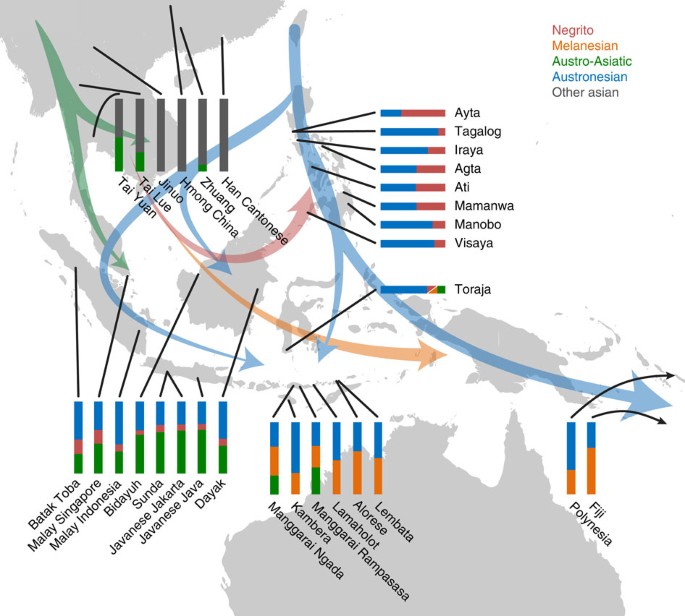Then your criticism seems pretty vague and frankly pointless, the 2 groups are as separate as any neighboring groups in history were and the existence of the term themselves carry no inherent meaning or statement about how these 2 groups interacted.They aren’t meaningless. I’ve never ever claimed that they are meaningless. But they are projections of European race science that have become normalised labels. They do not acknowledge the shared histories and cultures of “Melanesian” and “Polynesian” cultures as they were often studied in isolation to each other or as a comparative lens to determine the superiority or inferiority of the other based on race.
Even in the 19th century people have already begun to discuss the extent of the region and the people in it which went beyond mere perceived racial similarities, for example recognizing that some people spoke Polynesians must have come from the East and recognizing that language and genetic ancestry were not the same thing or trying to understand whether Melanesians language were unrelated languages influenced by Malay and Polynesian or whether they were related AND still influenced by Polynesians. I frankly do not see the point of discussing past historiography by literally flanderizing past scholars and taking the worst ones, the term became "normalized" the second people started discussing it beyond surface level observations of how the people looked and that as far as I can see might have already happened in the mid 19th century.
I'd argue that if we somehow wiped away all our collective knowledge of the region we would still end up re-creating the same labels.
Last edited:
